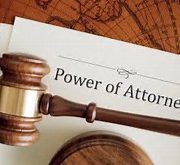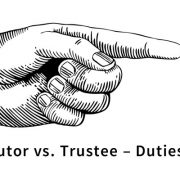What Recourse Do I Have if My Power of Attorney is Stealing From Me?
Cleveland, Ohio estate planning attorney, Daniel A. Baron, offers the following helpful answers to Powers of Attorney:
Can the Power of Attorney be used by the agent to take my money or property without my permission?
Unfortunately, you can run the risk that the agent you choose to give your Power of Attorney could abuse the power by spending your money or taking your money without your knowledge or worse without your permission. Because the agent can use the Power of Attorney to access your bank account and sell your property, it is prudent that you not give your Power of Attorney to anyone you do not trust. If you happen to have an unscrupulous agent, it can be very challenging to get back funds or property taken by the agent, because the agent usually has no money left to return as they have used it all for their benefit. The person acting as your Power of Attorney has the power to sell your property, or mortgage it. It cannot be stressed enough that you chose your Power of Attorney very wisely.
If I think someone is using my Power of Attorney to steal from me, what can I do?
If you are suspicious that your agent is abusing their powers, revoke the Power of Attorney immediately.
Next, without delay, notify all banks, brokerage firms, or other financial institutions in which you have money that you have revoked the Power of Attorney.
Finally, go to the probate court. You may either by yourself or through an attorney. Demand that the agent you suspect of absconding with your funds file a detailed account showing how your money was spent. A filing fee will need to be paid by you and you may need to possibly pay the agent for the cost of preparing the accounting documentation. Next, the court will hold a hearing at which time you can challenge the any or all of the information given in the detailed accounting. Ultimately, if the court finds the agent took your money without your authorization, you can sue the agent and/or possibly press criminal charges.
Can I revoke my Power of Attorney?
The Power of Attorney cannot be used unless the agent has it or it, or at least a copy and either you or they have given to banks, financial institutions, or others so that they think you want the agent to act on your behalf. If you have not given the Power of Attorney to anyone, you can revoke it by destroying the document.
If the eventuality the Power of Attorney has been given to the agent, an institution, or has already been recorded, you should execute immediately a revocation of the Power of Attorney that is witnessed and acknowledged in the same manner as the first Power of Attorney. Then; just as you distributed the Power of Attorney initially, you will need to furnish a copy of the Revocation to the banks, brokerage firm, or any other financial institution, and anyone else that may have a copy of the original Power of Attorney form that they know the Power of Attorney is no longer valid.
A Power of Attorney is only one of the many parts to a comprehensive estate plan. For information regarding living wills, trusts, power of attorney, or a pour-over will, or further questions on Powers of Attorney, contact Daniel A. Baron of Baron Law today at 216-573-3723.








